
Abidjan: The Paris of West Africa
Abidjan, often referred to as the 'Paris of West Africa,' is a bustling metropolis in Côte d'Ivoire. Known for its vibrant culture, rich history, and dynamic urban life, Abidjan is a must-visit destination for any traveler exploring West Africa. The city's skyline is a fascinating mix of modern skyscrapers and traditional West African architecture, reflecting its blend of the old and the new. One of Abidjan's main attractions is its diverse neighborhoods, each offering unique experiences. From the chic boutiques and cafés of Cocody to the lively markets of Treichville, there's always something to see and do. The Plateau, the city's business district, is home to some of the most stunning views of the Ébrié Lagoon, especially at sunset. For a taste of local life, visit the bustling markets where you can find everything from fresh produce to handmade crafts. Nature lovers will enjoy exploring the Banco National Park, a lush rainforest reserve located within the city limits. This green oasis offers hiking trails, picnic spots, and a glimpse of the region's incredible biodiversity. Another must-see is the St. Paul's Cathedral, an architectural marvel designed by Italian architect Aldo Spiritom. Its modern design and serene atmosphere make it a peaceful retreat from the city's hustle and bustle. Abidjan is also a culinary delight, offering a range of dining options that reflect its cosmopolitan nature. Try local dishes like attiéké (cassava couscous) with grilled fish, or indulge in French-inspired cuisine at one of the city's many upscale restaurants. The nightlife in Abidjan is equally vibrant, with numerous bars, clubs, and music venues where you can experience the city's energetic vibe. In summary, Abidjan is a city of contrasts and connections, where tradition meets modernity and where every corner offers a new adventure. Whether you're exploring its cultural landmarks, enjoying its natural beauty, or savoring its culinary delights, Abidjan promises an unforgettable experience.
Local tips in Abidjan
- Use taxis with meters or agree on a fare before starting your journey to avoid overcharging.
- Visit the markets early in the morning for the freshest produce and best deals.
- Stay hydrated and wear sunscreen, as the tropical climate can be quite hot and humid.
- Learn a few basic phrases in French, as it is the primary language spoken in Abidjan.
- Be cautious with street food; opt for popular and busy vendors for better hygiene.
- Respect local customs and dress modestly, especially when visiting religious sites.
Neighbourhoods in Abidjan
Abidjan: The Paris of West Africa
Abidjan, often referred to as the 'Paris of West Africa,' is a bustling metropolis in Côte d'Ivoire. Known for its vibrant culture, rich history, and dynamic urban life, Abidjan is a must-visit destination for any traveler exploring West Africa. The city's skyline is a fascinating mix of modern skyscrapers and traditional West African architecture, reflecting its blend of the old and the new. One of Abidjan's main attractions is its diverse neighborhoods, each offering unique experiences. From the chic boutiques and cafés of Cocody to the lively markets of Treichville, there's always something to see and do. The Plateau, the city's business district, is home to some of the most stunning views of the Ébrié Lagoon, especially at sunset. For a taste of local life, visit the bustling markets where you can find everything from fresh produce to handmade crafts. Nature lovers will enjoy exploring the Banco National Park, a lush rainforest reserve located within the city limits. This green oasis offers hiking trails, picnic spots, and a glimpse of the region's incredible biodiversity. Another must-see is the St. Paul's Cathedral, an architectural marvel designed by Italian architect Aldo Spiritom. Its modern design and serene atmosphere make it a peaceful retreat from the city's hustle and bustle. Abidjan is also a culinary delight, offering a range of dining options that reflect its cosmopolitan nature. Try local dishes like attiéké (cassava couscous) with grilled fish, or indulge in French-inspired cuisine at one of the city's many upscale restaurants. The nightlife in Abidjan is equally vibrant, with numerous bars, clubs, and music venues where you can experience the city's energetic vibe. In summary, Abidjan is a city of contrasts and connections, where tradition meets modernity and where every corner offers a new adventure. Whether you're exploring its cultural landmarks, enjoying its natural beauty, or savoring its culinary delights, Abidjan promises an unforgettable experience.
When is the best time to go to Abidjan?
Iconic landmarks you can’t miss
Parc National du Banco
Escape the city in Abidjan's Parc National du Banco, a lush rainforest teeming with wildlife and serene hiking trails.
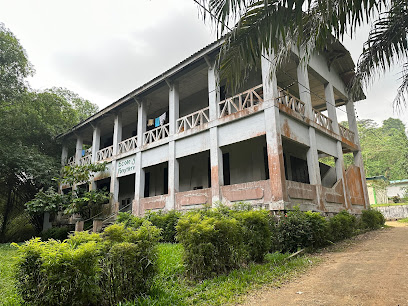
Zoo d'Abidjan
Discover West African wildlife at Zoo d'Abidjan, a conservation center in the heart of Abidjan, offering a family-friendly experience.
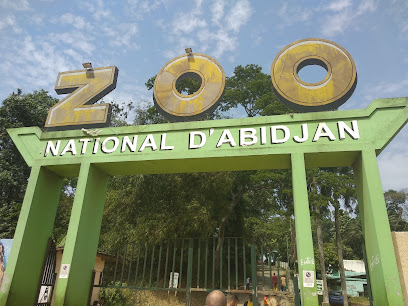
St. Paul's Cathedral
Discover Abidjan's iconic St. Paul's Cathedral: a modern architectural marvel blending faith and Ivorian culture.
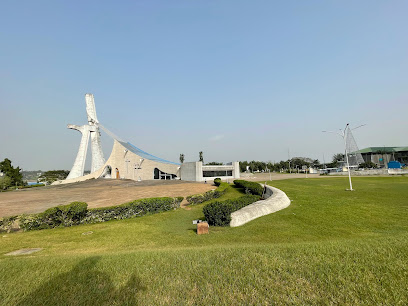
Palace of Culture
Experience the vibrant heart of Ivorian culture at Abidjan's Palais de la Culture, a dynamic hub for arts, music, and community events.
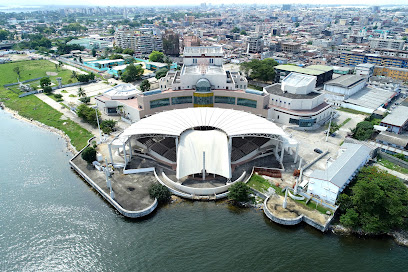
Palais des Sports
Experience the thrill of sports and entertainment at Abidjan's premier indoor arena, Palais des Sports de Treichville.
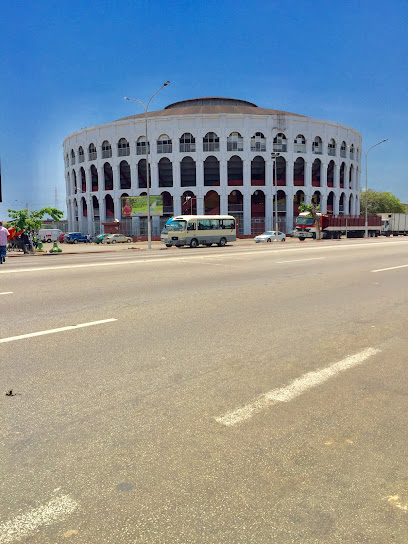
Plateau Mosque
Discover Abidjan's modern Islamic architectural gem, a beacon of faith in the heart of the Plateau district.
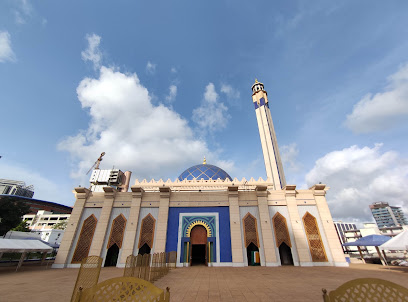
Stade Félix Houphouët Boigny
Experience the excitement of Côte d'Ivoire at Stade Félix Houphouët Boigny, a cultural gem in Abidjan with thrilling sports and vibrant events.
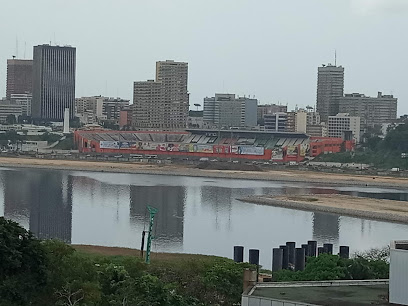
Adjamé Dabananni Market
Experience the vibrant culture and flavors of Abidjan at Adjamé Dabananni Market, a bustling hub of Ivorian life and commerce.
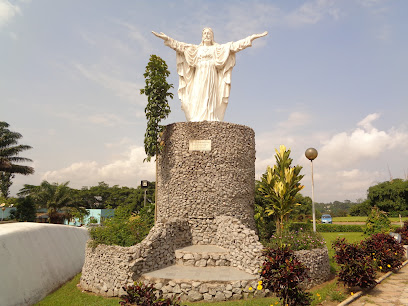
Grand Marché De Treichville
Experience the vibrant culture of Abidjan at Grand Marché De Treichville, a bustling marketplace with local crafts, food, and Ivorian hospitality.
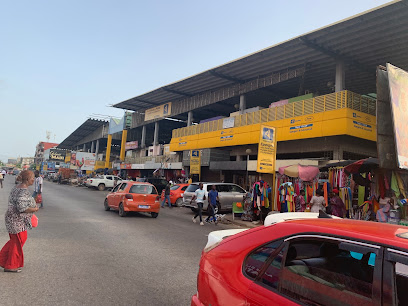
Musée des Civilisations de Côte d'Ivoire
Explore Ivory Coast's vibrant cultural history through ancient artifacts, traditional art, and ethnographic exhibits at Abidjan's Musée des Civilisations.
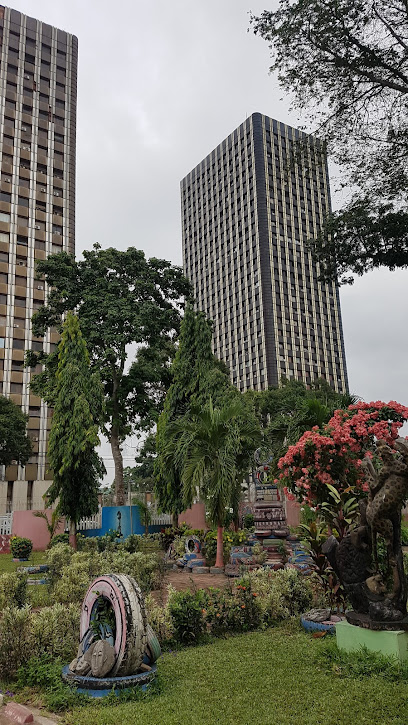
Maquis under the tree
Experience authentic Ivorian cuisine in a serene, nature-inspired setting at Maquis Under the Tree in Abidjan's Cocody neighborhood.
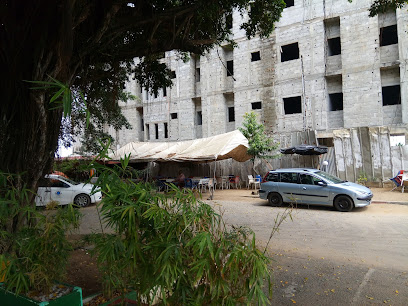
Mosque Riviera 1
Discover the serene beauty and architectural marvel of Mosque Riviera 1, a peaceful retreat in Abidjan's vibrant Cocody district.
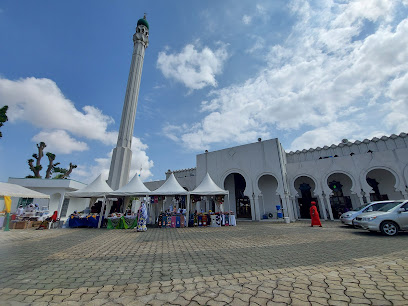
La Villa Alfira
Experience Ivorian gastronomy at La Villa Alfira in Abidjan: a fusion of local flavors, elegant ambiance, and unforgettable dining.
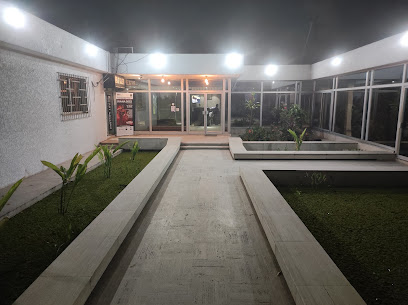
Les Jardins du Rail -Restaurant & espace évènementiel
Discover a tranquil garden oasis in Abidjan's Plateau district, offering a fusion of Ivorian and international cuisine for a unique dining experience.
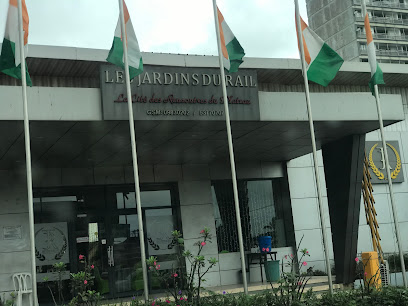
Palais Présidentiel
Discover Abidjan's Palais Présidentiel, an iconic symbol of Côte d'Ivoire's independence and architectural grandeur in the heart of the Plateau district.
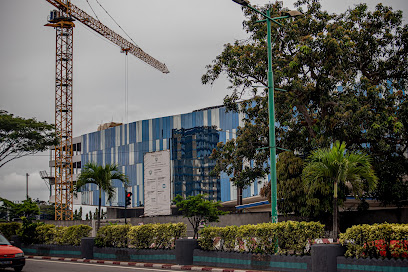
Unmissable attractions to see
St. Paul's Cathedral
Discover Abidjan's iconic St. Paul's Cathedral: a stunning blend of modern architecture and Ivorian culture, offering panoramic city views.
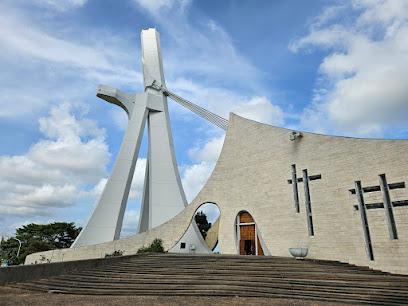
Ivoire Golf Club
Explore the stunning Ivoire Golf Club in Abidjan, where lush greens and amazing vistas await golf lovers and nature enthusiasts alike.
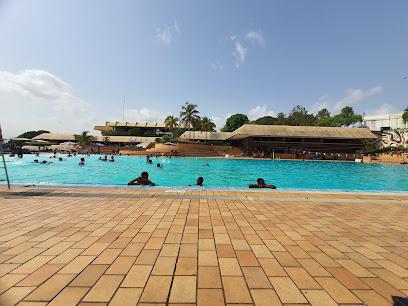
Plateau Mosque
Discover Abidjan's Plateau Mosque, a modern architectural marvel and a serene center for Islamic culture and worship.
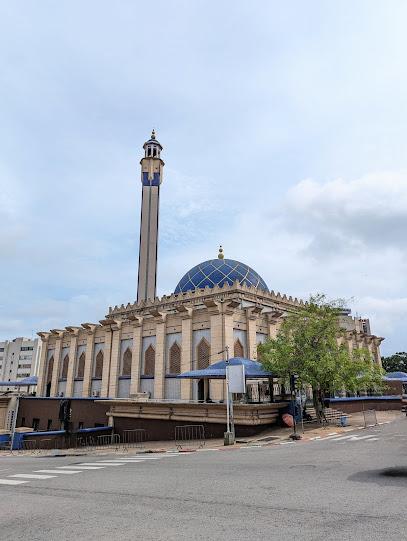
Paradisia Abidjan
Experience the thrill and excitement at Paradisia Abidjan, a top amusement park in Ivory Coast offering attractions for all ages.
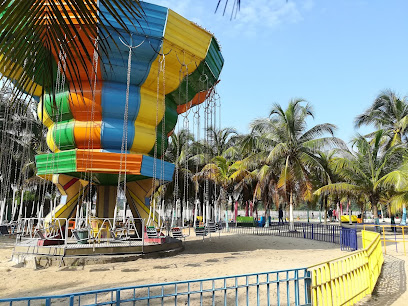
Musée des Civilisations de Côte d'Ivoire
Explore the vibrant history and diverse culture of Côte d'Ivoire at the Musée des Civilisations, a treasure trove of Ivorian heritage.
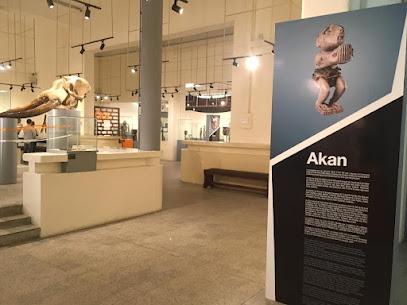
National Museum of Costume
Discover the vibrant history of Côte d'Ivoire through the exquisite collections at the National Museum of Costume in Grand-Bassam.
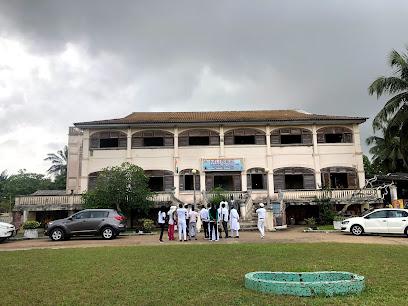
Galerie Cécile Fakhoury
Discover contemporary African art at Galerie Cécile Fakhoury in Abidjan, a leading gallery promoting artistic diversity and cultural dialogue.
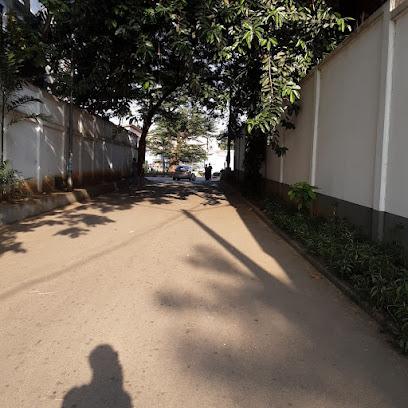
Ganamet House
Explore the historic Ganamet House in Grand-Bassam, a captivating blend of architecture and culture that tells the story of Côte d'Ivoire's rich past.
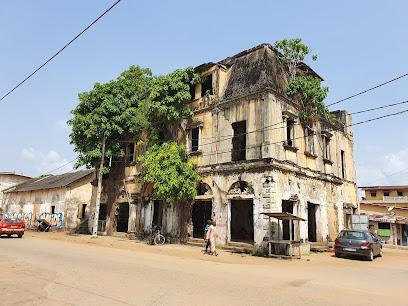
Laser Park Abidjan
Dive into the excitement of Laser Park Abidjan, where thrilling attractions and family fun create unforgettable memories in the heart of the city.
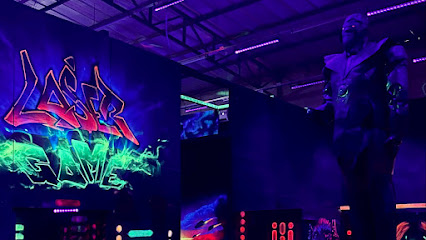
Splash Park Yopougon
Experience the ultimate water adventure at Splash Park Yopougon, a family-friendly attraction in the vibrant city of Abidjan, Côte d'Ivoire.
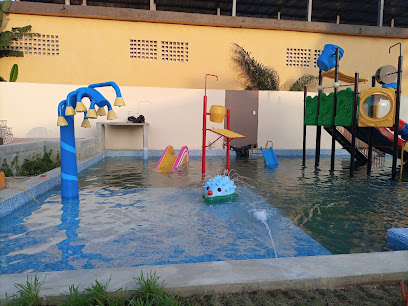
Canal de vridi
Discover the scenic Canal de Vridi in Abidjan, a tranquil oasis blending natural beauty with vibrant local culture, perfect for your travel adventures.
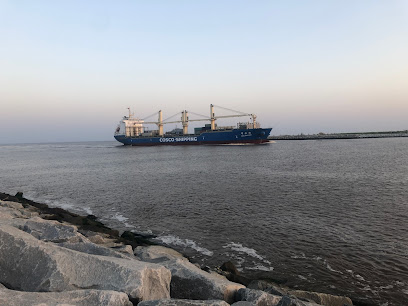
CFAO Store
Explore the CFAO Store in Grand-Bassam for unique souvenirs and a taste of Ivorian culture within a vibrant shopping atmosphere.
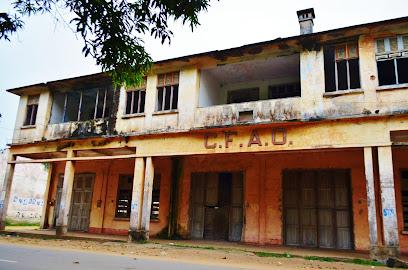
La pyramide
Discover La Pyramide, Abidjan's iconic Brutalist masterpiece, a symbol of architectural innovation and a testament to the city's modern heritage.
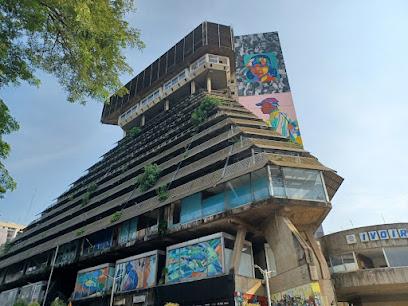
Maison de la Nature
Discover the serene beauty and historical significance of Maison de la Nature, a must-visit tourist attraction in Abidjan, Côte d'Ivoire.
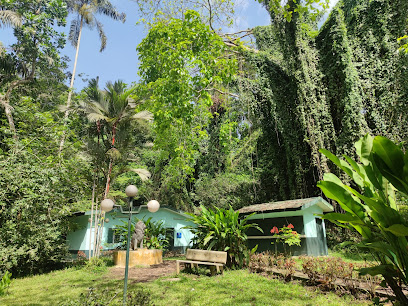
Bassam Sunset Beach
Discover the serenity of Bassam Sunset Beach, where stunning sunsets meet refreshing drinks in the heart of Grand-Bassam, Côte d'Ivoire.
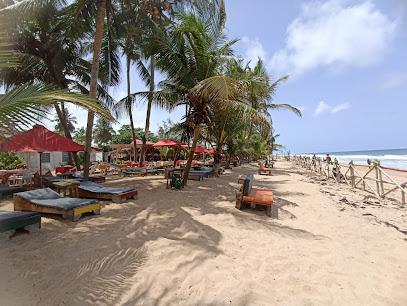
Essential places to dine
Bushman Café
Discover Abidjan's culinary gem at Bushman Café - where local flavors meet vibrant culture in every bite.
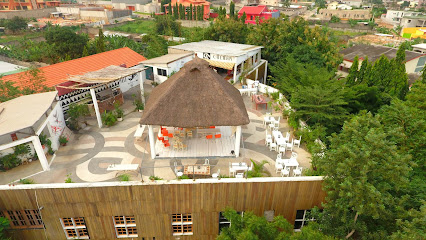
Copa D'Elio
Experience authentic Italian flavors at Copa D'Elio, the top-rated pizza destination in Abidjan's vibrant Marcory district.
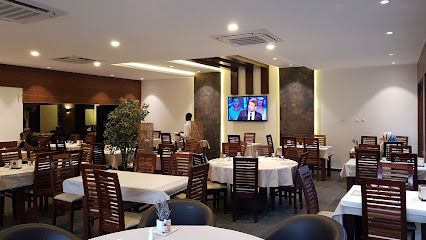
Le Débarcadère
Discover authentic Ivorian cuisine at Le Débarcadère in Abidjan's vibrant Treichville district—where every meal tells a story.
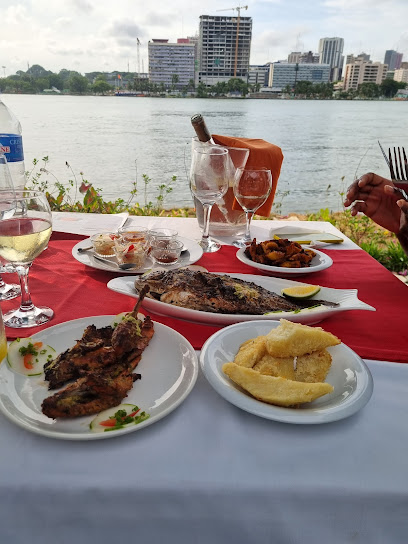
Norima
Discover Norima in Abidjan: A vibrant restaurant serving authentic Ivorian cuisine amidst a warm and welcoming atmosphere.
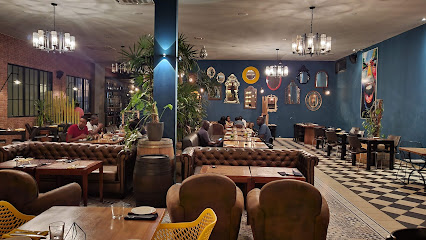
Le Mechoui
Experience authentic Lebanese cuisine at Le Mechoui in Abidjan – where every meal tells a story.
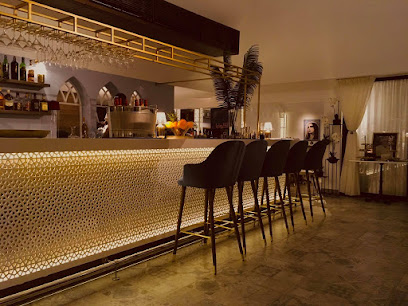
Chez Hélène
Discover the vibrant flavors of Africa at Chez Hélène in Abidjan - where authentic cuisine meets warm hospitality.
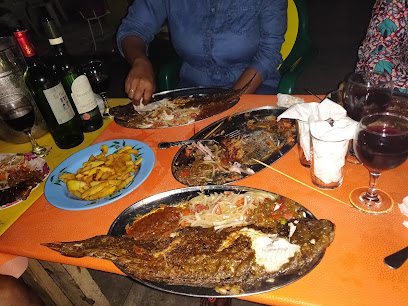
Restaurant Saakan
Discover the exquisite flavors of Ivorian cuisine at Restaurant Saakan in Abidjan's vibrant Plateau district.
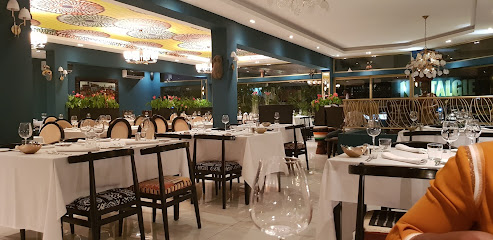
Di Sorrento
Discover authentic Italian cuisine at Di Sorrento in Abidjan's Marcory district—where flavor meets tradition in every dish.
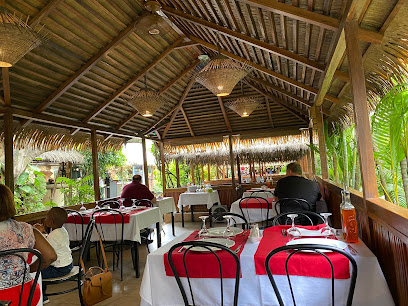
L'EDEN Abidjan | Food Sky Bar
Discover L'EDEN Abidjan: A premier sky bar offering exquisite tapas, cocktails, and live music against stunning city views.
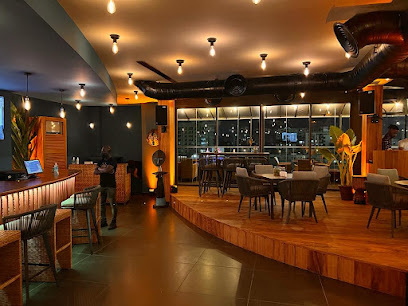
Parenthese
Experience the vibrant flavors of Abidjan at Parenthese—where exquisite cuisine meets lively ambiance in the heart of Marcory.
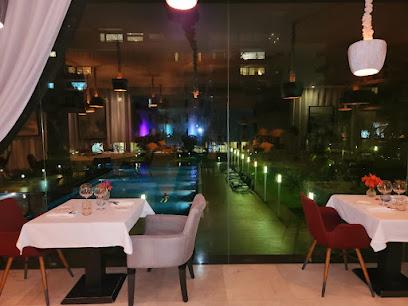
Restaurant Kajazoma
Experience authentic Ivorian flavors at Restaurant Kajazoma in Abidjan - where every dish tells a story.
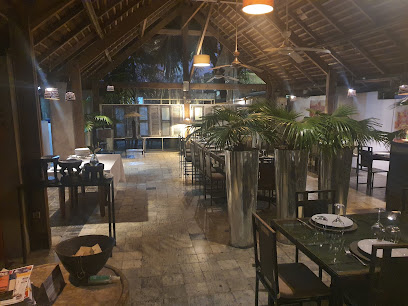
Jardyland
Experience the best of Ivorian cuisine at Jardyland in Abidjan – where every meal is a celebration of flavor and culture.
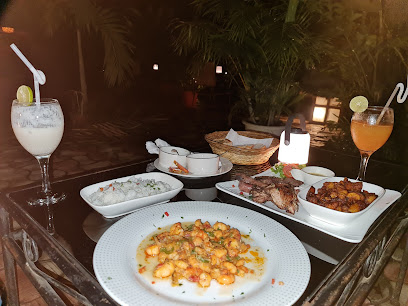
La Taverne Romaine
Discover exquisite flavors at La Taverne Romaine – where Ivorian tradition meets Mediterranean flair in an elegant setting.
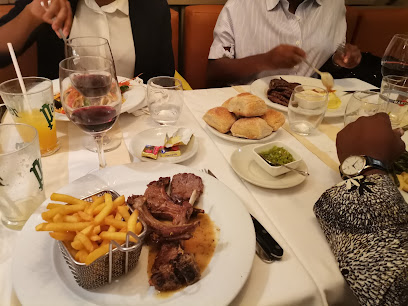
Restaurant Chez Arthur
Savor authentic Ivorian cuisine at Restaurant Chez Arthur - a must-visit culinary experience in Abidjan.
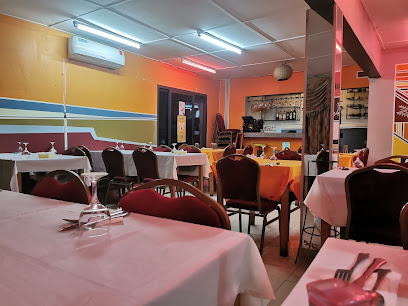
Indian By Nature
Experience authentic Indian cuisine at Indian By Nature in Abidjan – where tradition meets flavor in every dish.
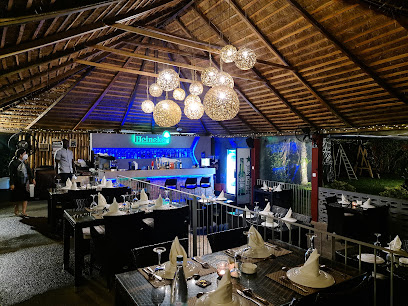
Markets, malls and hidden boutiques
Cap Sud
Discover Cap Sud, Abidjan's premier shopping mall, offering diverse shops, local dining, and a vibrant atmosphere for an unforgettable shopping experience.
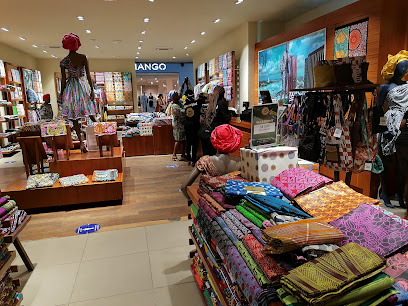
Abidjan Mall
Discover Abidjan Mall, a vibrant shopping and dining hub in Ivory Coast, blending modern retail with local culture for an unforgettable experience.
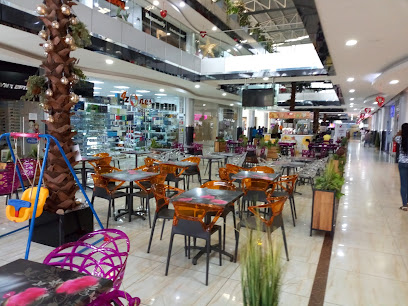
Playce Shopping Mall
Experience the ultimate shopping and entertainment adventure at Playce Shopping Mall in Abidjan, where local culture meets modern retail.
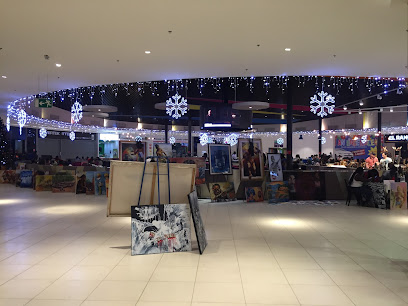
L.E créations
Explore Abidjan's finest luggage store, L.E créations, where style meets functionality for all your travel needs.
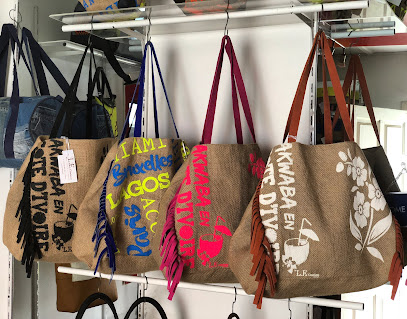
DOZO CONCEPT STORE
Explore the heart of Abidjan’s fashion at DOZO Concept Store, a stylish destination for unique clothing and local designer pieces.
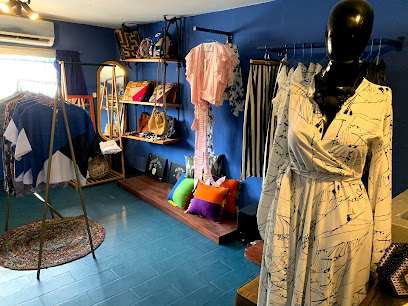
La Boutique Paysanne
Experience the flavors of Côte d'Ivoire at La Boutique Paysanne, your go-to grocery store in Abidjan for local ingredients and culinary delights.
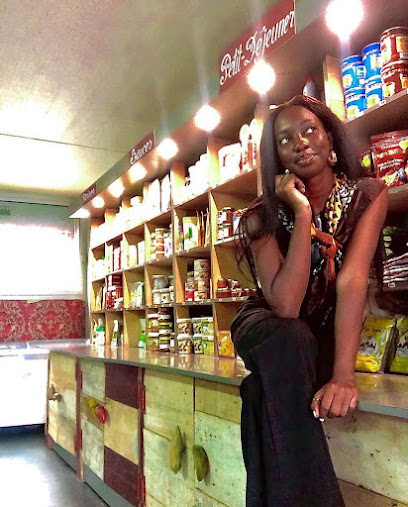
Future Store
Experience Abidjan's fashionable charm at Future Store, a boutique offering unique apparel and accessories that celebrate local craftsmanship.
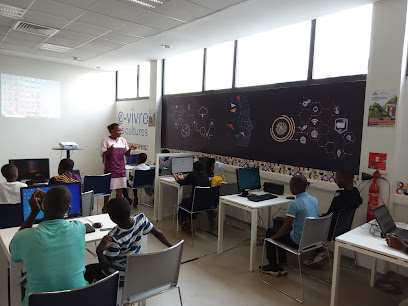
Abidjan Duty Free Shop
Explore the Abidjan Duty Free Shop for unbeatable prices on luxury items, local crafts, and a unique shopping experience in Ivory Coast.
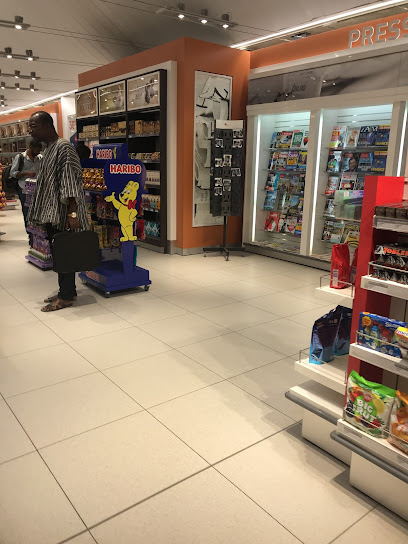
OJei Concept Store
Explore the vibrant OJei Concept Store in Abidjan for unique Ivorian crafts, stylish fashion, and memorable souvenirs that capture the essence of local culture.
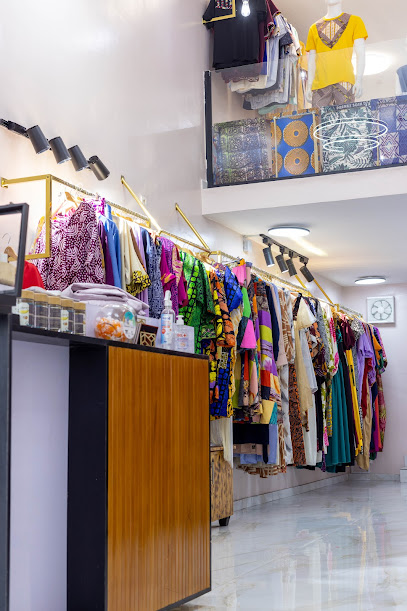
Paris Boutiques
Explore Paris Boutiques in Abidjan for a unique shopping experience featuring fashion, electronics, and home goods tailored to every style.
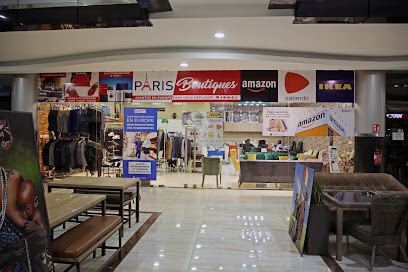
AYAN LA VILLA - Family concept-store à Abidjan, Côte d'Ivoire
Explore AYAN LA VILLA in Abidjan for an enchanting blend of handicrafts, fashion, and gourmet delights in a family-friendly environment.
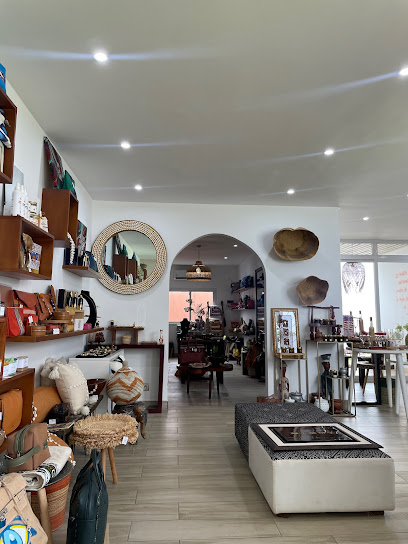
Brown Boutique Abidjan
Explore the vibrant fashion scene at Brown Boutique Abidjan - where contemporary style meets local craftsmanship for the modern woman.

Ruchama Shopping
Explore affordable women's fashion at Ruchama Shopping, a charming used clothing store in Abidjan's Koumassi district, perfect for budget-savvy shoppers.
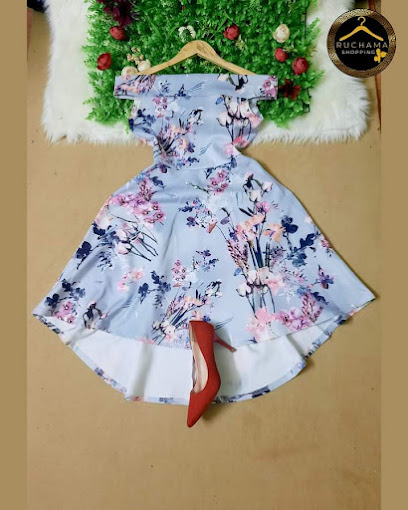
Nahyel Abidjan Cadeaux d’ici et d’Ailleurs
Explore Nahyel Abidjan Cadeaux d’ici et d’Ailleurs, a charming gift shop offering unique Ivorian souvenirs and crafts in the heart of Abidjan.
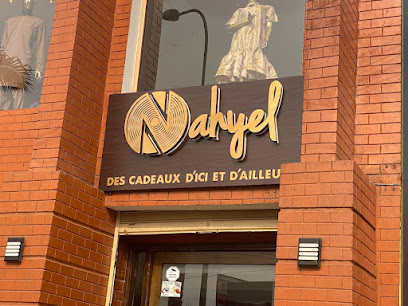
The Address boutique Abidjan
Discover unique styles at The Address Boutique Abidjan, where fashion meets local culture in a vibrant shopping experience.
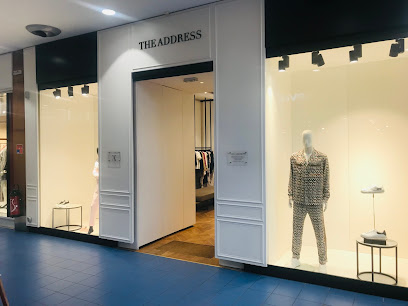
Essential bars & hidden hideouts
Parker Place
Discover the vibrant nightlife of Abidjan at Parker Place, where live music meets a cozy lounge atmosphere.
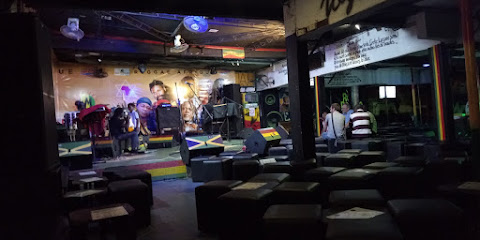
The Pharmacy Abidjan
Explore Abidjan's vibrant nightlife at The Pharmacy, a unique cocktail bar offering innovative drinks and a stylish lounge atmosphere.
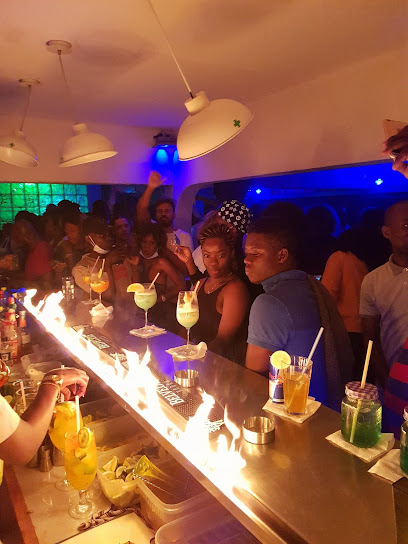
Pam's Abidjan
Discover the vibrant nightlife at Pam's Abidjan, a trendy bar in Cocody, where refreshing drinks and great ambiance await.
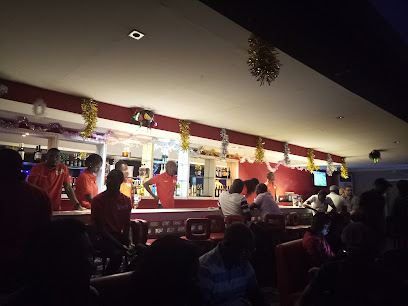
L'EDEN Abidjan | Food Sky Bar
Discover the vibrant flavors and breathtaking views at L'EDEN Abidjan, the city's premier food sky bar and nightlife destination.
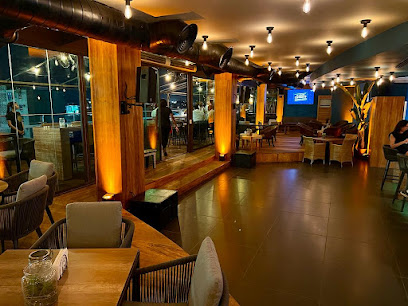
Le bar blanc
Experience the vibrant nightlife of Abidjan at Le Bar Blanc, where cocktails, music, and a lively atmosphere await every night.
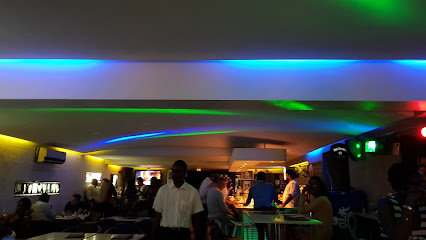
Cavally Lounge
Experience the vibrant nightlife of Abidjan at Cavally Lounge, where exquisite cocktails meet a lively atmosphere.
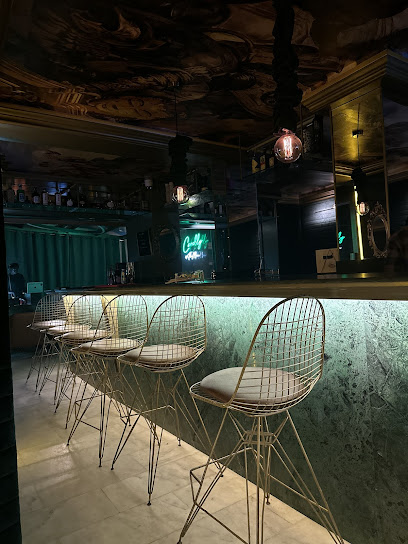
SKINNY LOUNGE
Discover the lively ambiance and delicious cocktails at Skinny Lounge, a premier destination for nightlife in Abidjan.
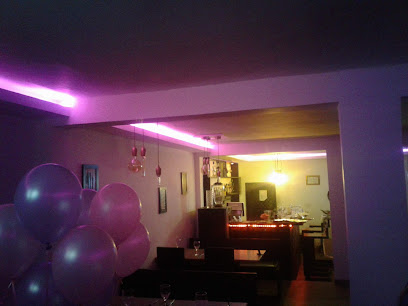
Swell Lounge
Discover the vibrant nightlife of Abidjan at Swell Lounge, a chic spot for creative cocktails and live music in a welcoming atmosphere.
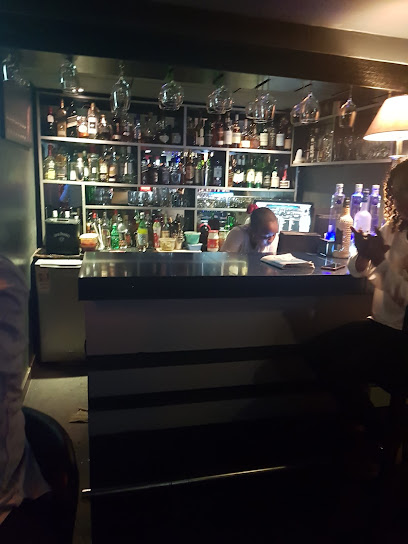
Ninety Degree 90°
Discover Ninety Degree 90° in Abidjan, where exquisite cocktails and live music create unforgettable nightlife experiences.
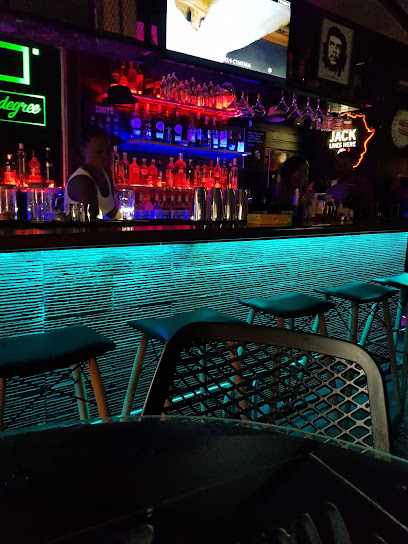
SELFIE BAR COCKTAIL
Discover the vibrant nightlife of Abidjan at Selfie Bar Cocktail, where creative cocktails and a lively atmosphere await.
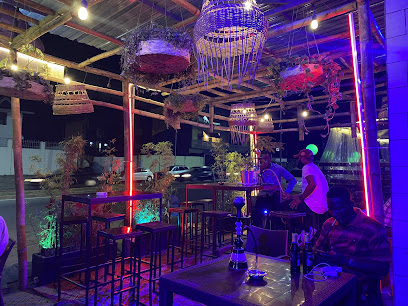
Jungle Bar
Discover Jungle Bar in Abidjan – a vibrant bar with an eclectic atmosphere and a diverse drink menu, perfect for nightlife enthusiasts.
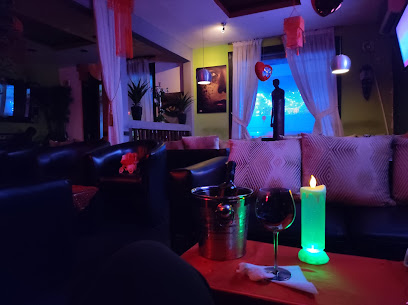
SECRET CLUB wood garden
Experience the vibrant nightlife at SECRET CLUB Wood Garden, a cocktail bar in Abidjan offering exquisite drinks and a tranquil ambiance.
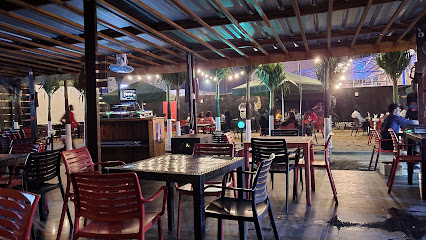
Yolo Club Abidjan
Experience the vibrant nightlife of Abidjan at Yolo Club, where great music, delicious drinks, and unforgettable memories await.
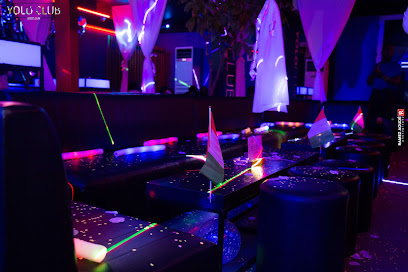
La Rue des Bars
Discover the lively nightlife of La Rue des Bars in Abidjan, where vibrant bars, local drinks, and unforgettable experiences await every traveler.
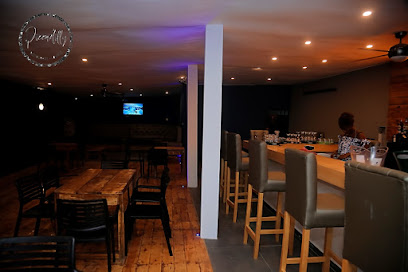
Local Phrases
-
- HelloBonjour
[Bon-jour] - GoodbyeAu revoir
[O re-vwar] - YesOui
[Wee] - NoNon
[Non] - Please/You're welcomeS'il vous plaît / De rien
[Seel voo pleh / De ree-en] - Thank youMerci
[Mehr-see] - Excuse me/SorryPardon
[Par-dohn] - How are you?Comment ça va?
[Kom-moh sah vah?] - Fine. And you?Bien. Et vous?
[Byen. Ay voo] - Do you speak English?Parlez-vous anglais?
[Par-lay voo ahn-glay] - I don't understandJe ne comprends pas
[Zhe nuh com-prahnd pah]
- HelloBonjour
-
- I'd like to see the menu, pleaseJe voudrais voir le menu, s'il vous plaît
[Zhe voo-dreh vwar luh meh-noo, seel voo pleh] - I don't eat meatJe ne mange pas de viande
[Zhe nuh mahnj pah duh vee-and] - Cheers!Santé!
[San-tay] - I would like to pay, pleaseJe voudrais payer, s'il vous plaît
[Zhe voo-dreh pay-ay, seel voo pleh]
- I'd like to see the menu, pleaseJe voudrais voir le menu, s'il vous plaît
-
- Help!Au secours!
[O seh-koor] - Go away!Allez-vous-en!
[Al-lay vooz ahn] - Call the Police!Appelez la police!
[Ah-peh-lay lah po-leece] - Call a doctor!Appelez un médecin!
[Ah-peh-lay uh meh-deh-sahn] - I'm lostJe suis perdu
[Zhe swee pair-doo] - I'm illJe suis malade
[Zhe swee mah-lahd]
- Help!Au secours!
-
- I'd like to buy...Je voudrais acheter...
[Zhe voo-dreh ah-shet-ay] - I'm just lookingJe regarde juste
[Zhe ruh-gard juhst] - How much is it?Combien ça coûte?
[Kom-byen sah koot] - That's too expensiveC'est trop cher
[Say troh shair] - Can you lower the price?Pouvez-vous baisser le prix?
[Poo-vez voo bay-say luh pree]
- I'd like to buy...Je voudrais acheter...
-
- What time is it?Quelle heure est-il?
[Kell uhr ay-tee-uhl] - It's one o'clockIl est une heure
[Eel ay oon uhr] - Half past (10)Dix heures et demie
[Dees uhr ay duh-mee] - MorningMatin
[Mah-tan] - AfternoonAprès-midi
[Ah-pray-mee-dee] - EveningSoir
[Swah] - YesterdayHier
[Yehr] - TodayAujourd'hui
[Oh-zhoor-dwee] - TomorrowDemain
[Deh-man] - 1Un
[Ehn] - 2Deux
[Duh] - 3Trois
[Twa] - 4Quatre
[Kahtr] - 5Cinq
[Sank] - 6Six
[Sees] - 7Sept
[Set] - 8Huit
[Wheat] - 9Neuf
[Nuf] - 10Dix
[Dees]
- What time is it?Quelle heure est-il?
-
- Where's a/the...?Où est le/la...?
[Oo ay luh/lah] - What's the address?Quelle est l'adresse?
[Kell ay lah-dress] - Can you show me (on the map)?Pouvez-vous me montrer (sur la carte)?
[Poo-vez voo muh mohn-tray (soor lah kart)] - When's the next (bus)?Quand est le prochain (bus)?
[Kahnd ay luh proh-shay (bus)] - A ticket (to ....)Un billet (pour ....)
[Ehn bee-yay (poor)]
- Where's a/the...?Où est le/la...?
History of Abidjan
-
Abidjan was founded in 1898 as a small fishing village. The French colonists saw its potential due to its strategic location along the Ébrié Lagoon, and it began to develop as a colonial outpost. The village was originally inhabited by the Ébrié people, who lived along the lagoon and were known for their fishing and trade skills.
-
During the early 20th century, Abidjan grew significantly under French colonial rule. The construction of the Vridi Canal in 1951 was a turning point, as it connected the Ébrié Lagoon to the Atlantic Ocean, transforming Abidjan into a major port city. This development led to a construction boom and an influx of people from various parts of Côte d'Ivoire and neighboring countries.
-
Côte d'Ivoire gained independence from France in 1960, and Abidjan was declared the capital. Under President Félix Houphouët-Boigny, the city experienced rapid growth and modernization. Major infrastructure projects, such as the construction of the Plateau business district and the University of Abidjan, were undertaken to establish Abidjan as a key economic hub in West Africa.
-
The death of President Houphouët-Boigny in 1993 marked the beginning of political instability. The city witnessed significant unrest during the Ivorian Civil Wars of 2002-2007 and 2010-2011. Despite these challenges, Abidjan remained resilient, with its economy driven by the port, banking, and telecommunications sectors.
-
Abidjan is a vibrant cultural hub, reflecting the diverse ethnic groups of Côte d'Ivoire and its history of migration. Neighborhoods like Treichville and Cocody are known for their lively music scenes, including genres such as Coupé-Décalé and Zouglou. The city also hosts numerous cultural festivals, such as the MASA (Market for African Performing Arts), showcasing the rich artistic heritage of the region.
-
Today, Abidjan is a bustling metropolis known as the 'Paris of West Africa.' The city is characterized by its modern skyline, bustling markets, and vibrant nightlife. Areas like Plateau, with its skyscrapers and business centers, and Yopougon, known for its nightlife, reflect the dynamic and ever-evolving nature of Abidjan.
Abidjan Essentials
-
Abidjan is served by Félix Houphouët-Boigny International Airport (ABJ), located around 16 kilometers southeast of the city center. The airport handles flights from various international destinations in Europe, Africa, and the Middle East. From the airport, you can reach the city center by taxi, which is the most convenient option. There are also shuttle services offered by some hotels. Additionally, there are intercity bus services connecting Abidjan with other major cities in Côte d'Ivoire and neighboring countries.
-
Abidjan has a well-developed public transportation system that includes buses, taxis, and the water bus service. The Société des Transports Abidjanais (SOTRA) operates city buses and water buses. Taxis are ubiquitous and come in two types: metered 'orange taxis' and shared 'woro-woro' taxis that follow fixed routes. Car rentals are also available for those who prefer to drive themselves, but be aware that traffic can be heavy and roads may be congested.
-
The official currency in Côte d'Ivoire is the West African CFA franc (XOF). Credit cards are widely accepted in hotels, restaurants, and shopping centers in Abidjan, but it is advisable to carry some cash for smaller establishments and markets. ATMs are readily available throughout the city. Currency exchange services are offered at the airport, banks, and exchange bureaus.
-
While Abidjan is generally safe for tourists, it is important to exercise caution, especially in certain areas. Districts such as Yopougon and Abobo have higher crime rates and should be approached with caution, particularly at night. Petty crimes like pickpocketing and scams can occur in crowded places and tourist hotspots. It is advisable to avoid walking alone after dark and to keep valuables secure. Always use registered taxis and avoid flagging down random vehicles.
-
In case of emergency, dial 170 for police assistance, 180 for medical emergencies, and 180 for fire services. Major hospitals in Abidjan include CHU de Cocody and CHU de Treichville. It is highly recommended to have travel insurance that covers medical emergencies. Pharmacies are available throughout the city for minor health issues. Keep a list of emergency contacts and your embassy's phone number handy.
-
Fashion: Do dress modestly, especially when visiting religious sites and rural areas. Avoid overly revealing clothing. Religion: Do respect local customs and traditions. Always ask for permission before taking photos of people or religious sites. Public Transport: Do be respectful and patient when using public transportation. Don't eat or drink on buses. Greetings: Do greet people with a handshake and a smile. A polite 'Bonjour' or 'Bonsoir' is appreciated. Eating & Drinking: Do try local dishes and eat with your right hand if dining in traditional settings. Don't refuse food or drink offerings, as it may be considered impolite.
-
To experience Abidjan like a local, visit the Treichville and Cocody markets for fresh produce, spices, and local crafts. Take a stroll along the Banco National Park for a taste of the local flora and fauna. Enjoy a meal at a 'maquis,' which is a local eatery offering traditional Ivorian cuisine. Engage with locals, as they are often friendly and willing to share stories about their city. Don’t miss the chance to explore the vibrant nightlife in the Marcory and Plateau districts.
Trending Landmark in Abidjan
-
Parc National du Banco
-
Zoo d'Abidjan
-
St. Paul's Cathedral
-
Palace of Culture
-
Palais des Sports
-
Plateau Mosque
-
Stade Félix Houphouët Boigny
-
Adjamé Dabananni Market
-
Grand Marché De Treichville
-
Musée des Civilisations de Côte d'Ivoire
-
Maquis under the tree
-
Mosque Riviera 1
-
La Villa Alfira
-
Les Jardins du Rail -Restaurant & espace évènementiel
-
Palais Présidentiel
Nearby Cities to Abidjan
-
Things To Do in Yamoussoukro
-
Things To Do in Sassandra
-
Things To Do in Takoradi
-
Things To Do in Sekondi-Takoradi
-
Things To Do in Sunyani
-
Things To Do in San-Pédro
-
Things To Do in Kumasi
-
Things To Do in Cape Coast
-
Things To Do in Daloa
-
Things To Do in Koforidua
-
Things To Do in Accra
-
Things To Do in Ho
-
Things To Do in Kpalimé
-
Things To Do in Wa
-
Things To Do in Sanniquellie
















